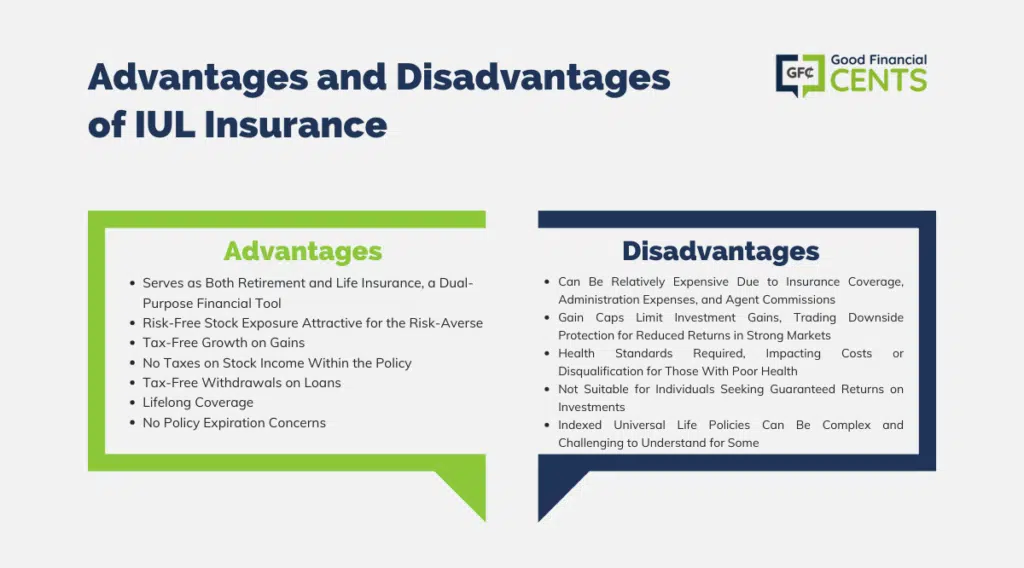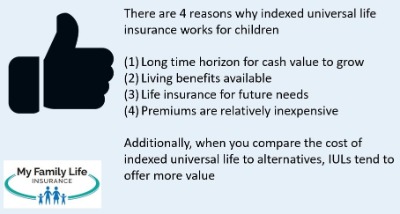All Categories
Featured
Table of Contents
1), typically in an attempt to beat their group averages. This is a straw guy debate, and one IUL people love to make. Do they contrast the IUL to something like the Vanguard Total Securities Market Fund Admiral Shares with no load, a cost proportion (EMERGENCY ROOM) of 5 basis factors, a turnover proportion of 4.3%, and an extraordinary tax-efficient record of circulations? No, they contrast it to some horrible actively handled fund with an 8% load, a 2% ER, an 80% turnover ratio, and a terrible document of temporary resources gain distributions.
Common funds frequently make annual taxed circulations to fund proprietors, also when the value of their fund has actually gone down in value. Shared funds not just require income coverage (and the resulting annual tax) when the common fund is going up in worth, yet can also enforce earnings taxes in a year when the fund has gone down in worth.
That's not how shared funds function. You can tax-manage the fund, harvesting losses and gains in order to reduce taxed distributions to the investors, yet that isn't in some way mosting likely to alter the reported return of the fund. Just Bernie Madoff kinds can do that. IULs stay clear of myriad tax obligation traps. The possession of common funds may need the common fund proprietor to pay projected tax obligations.

IULs are simple to place to ensure that, at the owner's death, the recipient is exempt to either income or inheritance tax. The exact same tax reduction methods do not work almost too with mutual funds. There are many, commonly costly, tax obligation catches linked with the timed purchasing and selling of common fund shares, catches that do not put on indexed life insurance policy.
Opportunities aren't really high that you're mosting likely to undergo the AMT as a result of your shared fund distributions if you aren't without them. The rest of this one is half-truths at finest. While it is true that there is no earnings tax due to your beneficiaries when they inherit the profits of your IUL policy, it is likewise real that there is no earnings tax due to your heirs when they inherit a shared fund in a taxable account from you.
Books On Indexed Universal Life
There are far better ways to stay clear of estate tax concerns than acquiring financial investments with low returns. Shared funds might cause income taxes of Social Security advantages.

The growth within the IUL is tax-deferred and might be taken as free of tax income via finances. The policy owner (vs. the mutual fund manager) is in control of his/her reportable revenue, therefore allowing them to reduce or even remove the taxation of their Social Safety and security advantages. This set is fantastic.
Right here's another minimal issue. It's real if you purchase a mutual fund for say $10 per share just before the distribution date, and it disperses a $0.50 distribution, you are after that mosting likely to owe tax obligations (possibly 7-10 cents per share) although that you have not yet had any kind of gains.
But ultimately, it's actually about the after-tax return, not just how much you pay in taxes. You are mosting likely to pay even more in tax obligations by making use of a taxed account than if you acquire life insurance. You're likewise probably going to have even more money after paying those taxes. The record-keeping requirements for possessing shared funds are substantially much more complex.
With an IUL, one's documents are kept by the insurance policy business, duplicates of yearly statements are sent by mail to the owner, and distributions (if any) are totaled and reported at year end. This one is likewise kind of silly. Naturally you should maintain your tax documents in instance of an audit.
Variable Universal Life Vs Indexed Universal Life
Rarely a reason to purchase life insurance. Shared funds are typically part of a decedent's probated estate.
Additionally, they undergo the delays and expenditures of probate. The proceeds of the IUL plan, on the other hand, is constantly a non-probate distribution that passes beyond probate directly to one's called recipients, and is for that reason not subject to one's posthumous financial institutions, unwanted public disclosure, or similar hold-ups and expenses.
Medicaid incompetency and life time earnings. An IUL can offer their owners with a stream of revenue for their whole life time, no matter of exactly how lengthy they live.

This is beneficial when arranging one's affairs, and transforming assets to earnings before a nursing home confinement. Common funds can not be converted in a similar fashion, and are generally thought about countable Medicaid properties. This is another silly one supporting that poor people (you recognize, the ones who need Medicaid, a government program for the inadequate, to pay for their assisted living home) ought to utilize IUL as opposed to mutual funds.
Best Guaranteed Universal Life Insurance Companies
And life insurance policy looks dreadful when contrasted rather against a retired life account. Second, individuals who have money to get IUL above and past their retired life accounts are going to need to be terrible at handling cash in order to ever receive Medicaid to spend for their nursing home costs.
Persistent and terminal disease motorcyclist. All plans will certainly permit a proprietor's very easy accessibility to cash money from their plan, usually forgoing any kind of abandonment charges when such individuals suffer a serious disease, need at-home care, or come to be confined to a retirement home. Shared funds do not supply a comparable waiver when contingent deferred sales costs still use to a common fund account whose owner needs to market some shares to fund the expenses of such a stay.
Is An Iul A Good Investment
You obtain to pay more for that benefit (rider) with an insurance plan. Indexed universal life insurance gives fatality advantages to the recipients of the IUL proprietors, and neither the owner nor the beneficiary can ever shed money due to a down market.
I absolutely do not require one after I reach financial self-reliance. Do I desire one? On standard, a buyer of life insurance pays for the real cost of the life insurance coverage benefit, plus the prices of the plan, plus the earnings of the insurance coverage firm.
Universal Life Insurance With Living Benefits
I'm not entirely sure why Mr. Morais included the entire "you can not shed money" once again below as it was covered rather well in # 1. He simply desired to repeat the finest selling point for these points I intend. Once more, you do not shed small dollars, yet you can lose actual dollars, as well as face major possibility price because of low returns.

An indexed universal life insurance policy owner may trade their policy for an entirely various policy without activating revenue taxes. A shared fund owner can not move funds from one mutual fund business to one more without offering his shares at the previous (hence setting off a taxable occasion), and buying new shares at the last, commonly based on sales fees at both.
While it holds true that you can trade one insurance plan for an additional, the reason that individuals do this is that the very first one is such a terrible plan that also after purchasing a brand-new one and experiencing the early, negative return years, you'll still appear in advance. If they were sold the appropriate policy the very first time, they shouldn't have any type of desire to ever trade it and experience the very early, unfavorable return years once more.
Table of Contents
Latest Posts
Iul Dortmund
Index Insurance Company
Insurance Stock Index
More
Latest Posts
Iul Dortmund
Index Insurance Company
Insurance Stock Index